Discovering Hawkshead
Last weekend, we had the pleasure of discovering Hawkshead, Cumbria. There are good reasons why this charming village has been uknown to me, being an immigrant and all. However, I might not have been the first immigrant to visit. I’ll return to that.
My wife, on the other hand, is virtually a local. She has lived a 45-minute drive from Hawkshead all her life. Still, she had never been inside the village.
Anyway, last weekend, our parental duties required us to transport our daughter/bonus daughter to a girl guide’s event in Hawkshead on Friday afternoon and pick her up again on Sunday morning. My wife and I were both thrilled to finally see this historic village.
(Featured image: a village street with the red sign of Ann Tysons House.)
Haukur’s Sætr
The village’s website claims its name derives from Old Norse ‘Haukr’s Saetr’.
‘Haukr’ (or ‘Hauk’ in modern Norwegian) is a man’s name meaning ‘Hawk’. Even though some people think I’m old enough for it, I never was a native Old Norse speaker. However, I would guess that ’Saetr’ (or Sætr) could mean ‘seat’ (‘sete’ in modern Norwegian, meaning settlement in this context) or ‘summer farm’ (‘sæter’ in modern Norwegian). Traditionally, some Norwegian farmers moved their livestock to a ‘summer farm’ in the mountains in the summer to save the grass around the lowland farm for winter fodder.
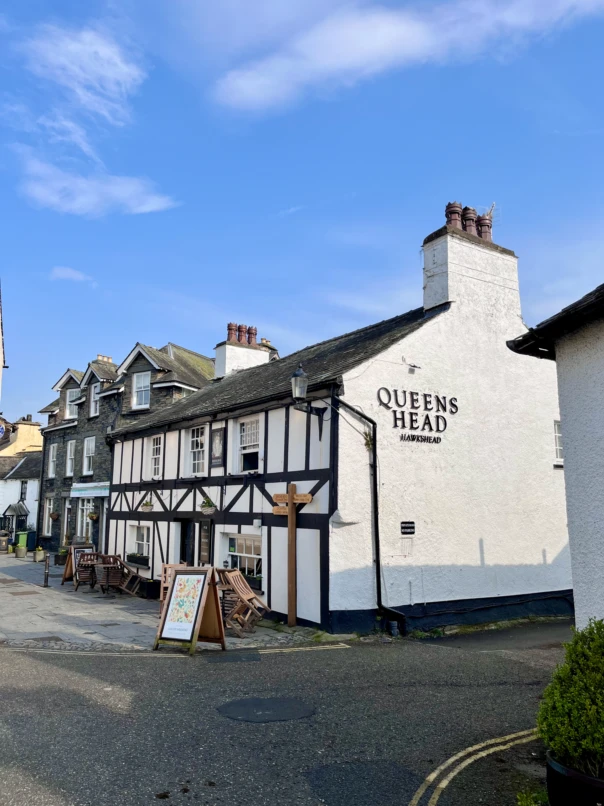
Well, this was the earlier immigrant I mentioned. My fellow Norwegian, old Haukr, might have founded the Hawkshead settlement more than 1,000 years before I came for a brief visit.

Hawkshead has primarily been a market town, run for centuries by the monks of Furness Abbey. The remains of Furness Abbey are still a prominent tourist attraction in our neighbourhood.
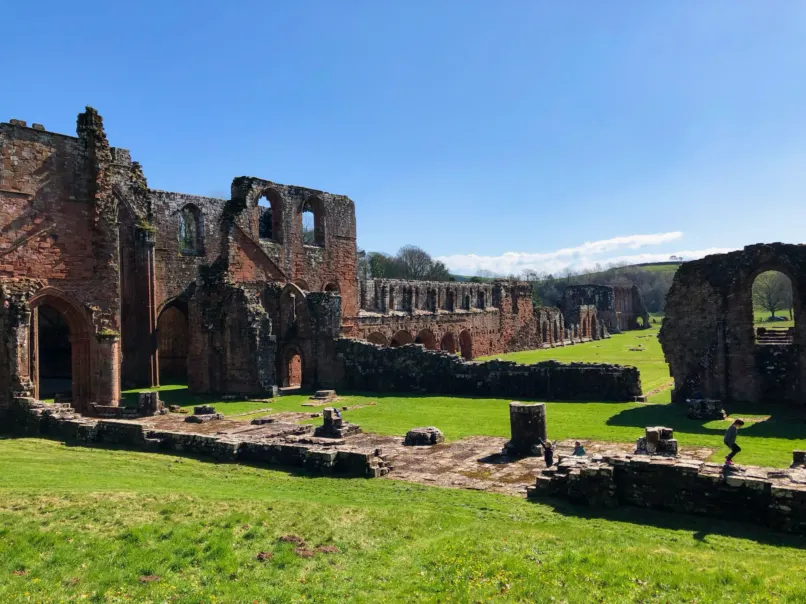
The renowned poet William Wordsworth lodged in Ann Tysons House while studying at Hawkshead Grammar School.
Hawkshead today
There’s no doubt that a village of Hawkhead’s size wouldn’t have this many shops, cafes, and restaurants if tourism weren’t the primary source of income. We incidentally arrived at relatively quiet moments, both on Friday and Sunday. This allowed us to see the charming, narrow streets and eat without feeling overcrowded.
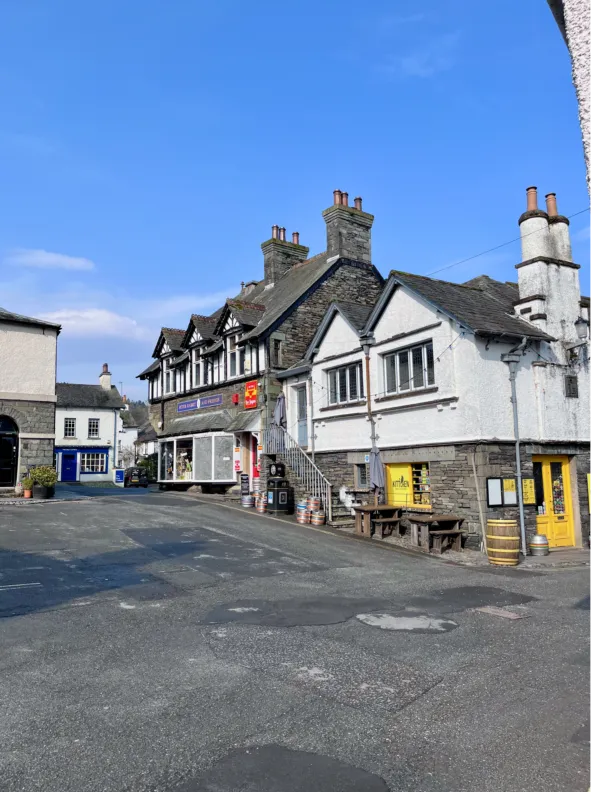
The nicest thing about Hawkshead was that cars were banned from the village itself. Instead, a relatively spacious car park is available on the village’s outskirts. Hawkshead must be a nicer place to walk around, even on the busiest days, compared to other popular tourist destinations in the Lake District.
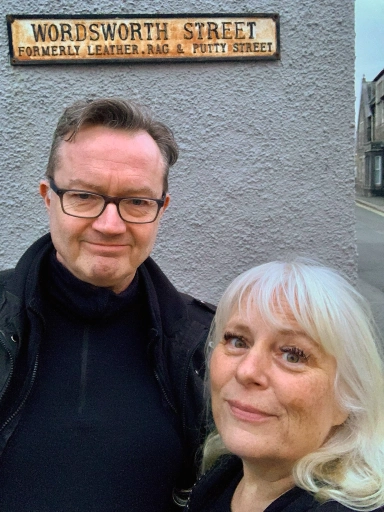
And for us, Hawkshead is definitely a place worth returning to.
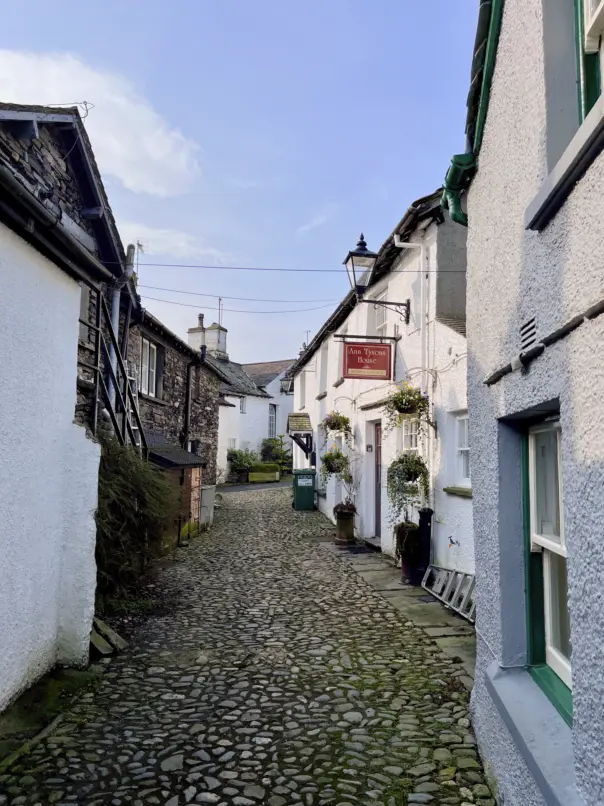

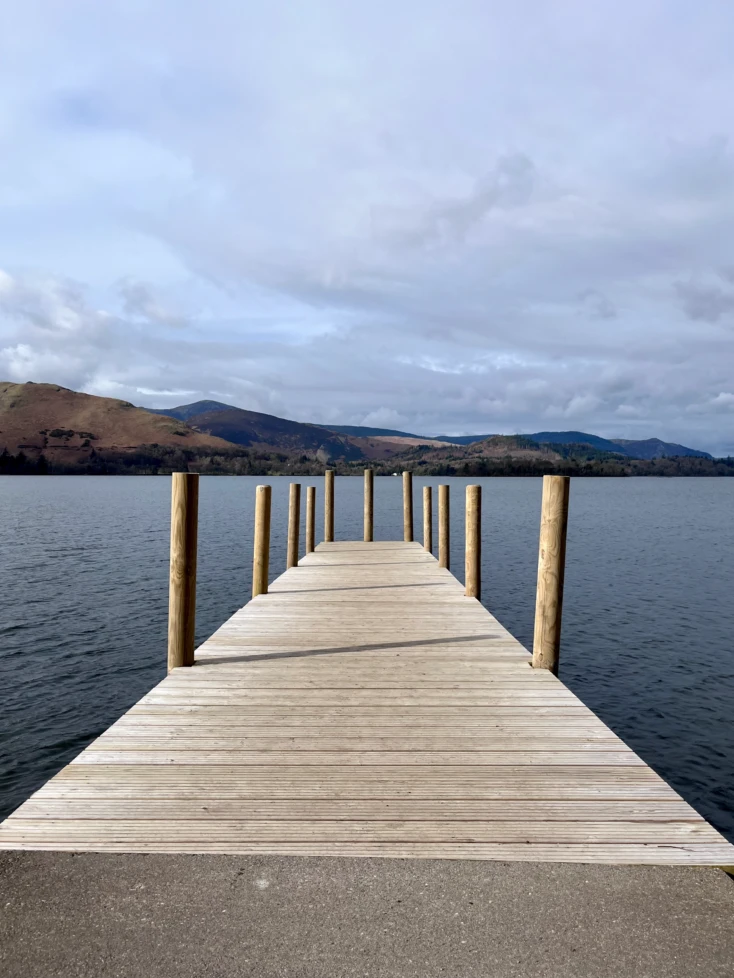
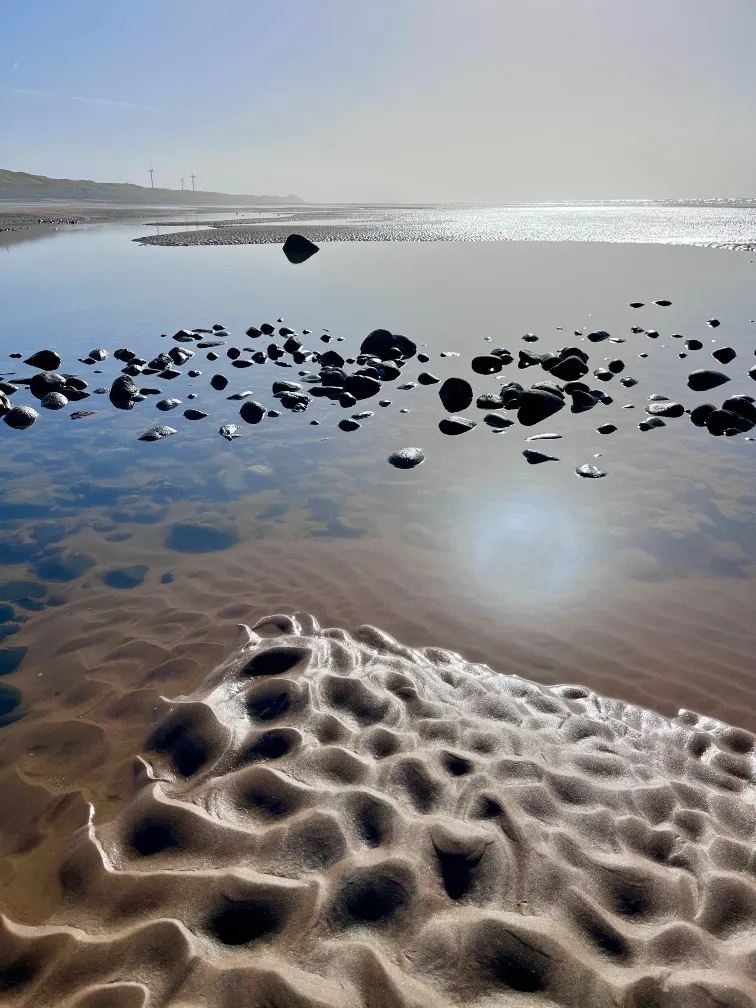
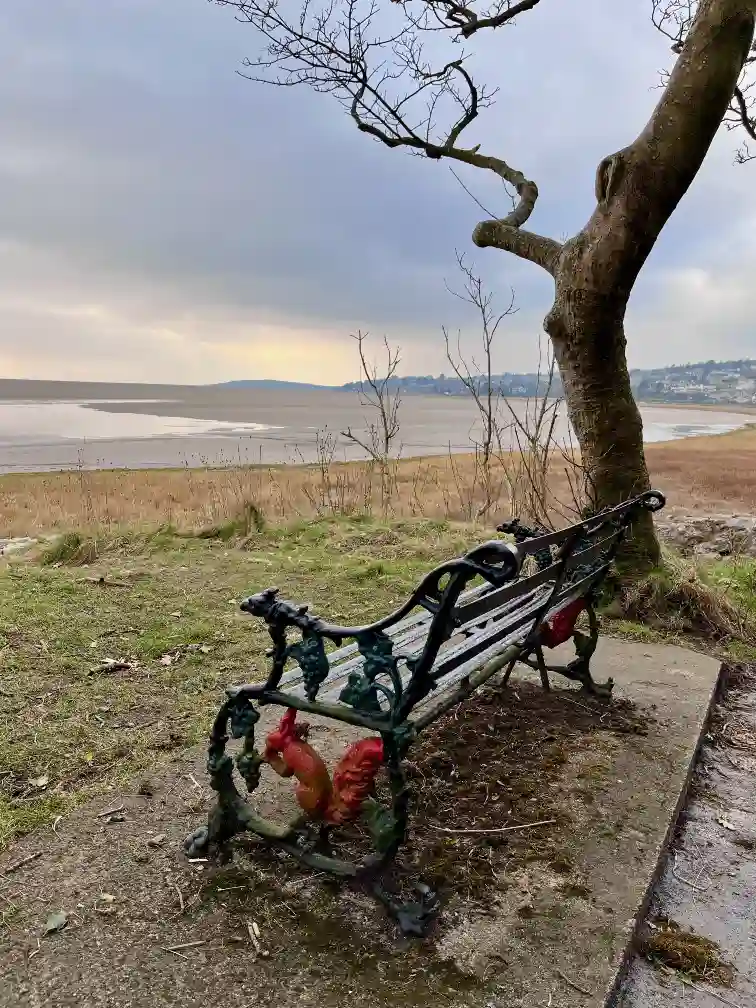

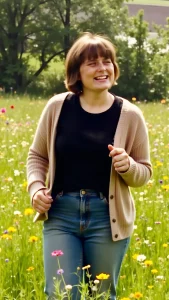





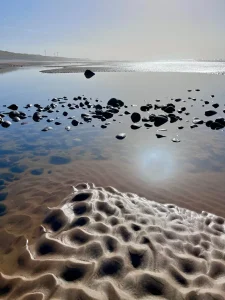


Post Comment
You must be logged in to post a comment.